Words CHUTINANTA BOONYAMARN Photography ARTWIT PUNDRIKAPA
How British expat Dominique Perry helped establish the first 100 percent dedicated dyslexic programme in Southeast Asia, at Berkeley International School Bangkok
| DOMINIQUE Perry has always been proud of her daughters. After all, they’re bright, polite and well-behaved – just like all the other good kids in school – and they’re both wizards in the art room. But despite all this, when it comes to reading and spelling, her youngest daughter, Kiara, has always struggled. And nobody seemed to know why. “I was given many explanations for her difficulties from a number of teachers, friends and family members, and they’d all say the same thing,” says Dominique, who together with her Australian husband runs a manufacturing business (producing both canopies and armoured vehicles) based in Ladkrang Industrial Estate. “They’d say: ‘She’s struggling because she’s bilingual,’ or ‘she’s just a slow learner,’ but I couldn’t accept those reasons. I had to find out what was wrong.” |
Dominique received her answer on May 14, 2013, when Kiara went to see a professional educational psychologist.
“I’ll never forget that day,” says Dominique. “That day changed my life and sent me on an educational mission – a mission to help children in the same position as my youngest daughter.”
Kiara, then aged eight had been diagnosed with having dyslexia (otherwise known as developmental reading disorder), a type of learning difficulty that is characterized by the inability, or having significant struggle, to read fluently and with accurate comprehension despite a normal to high intelligence.
Some of the difficulties associated with dyslexia include phonological awareness, processing speed, auditory short-term memory, language skills/verbal comprehension, and rapid naming.
“Suddenly it all made sense,” says Dominique. “All the questions swimming around my mind, they finally had an answer.”
But those answers, unfortunately, weren’t all encompassing.
“After spending four hours thoroughly reviewing the results with the assessor, and discussing what options were available for the family, I was shocked to find nothing was available in Thailand,” she says. “Absolutely nothing at all.”
After that session Dominique began knocking on doors of various schools in Bangkok and asking one question they never were able to answer – “Do you offer multi-sensory teaching?” (Multi-sensory teaching involves visual and auditory techniques specially geared towards kids with dyslexia).
She then asked if they take dyslexic students – ‘yes’ – and whether or not they had teachers specializing in teaching dyslexic students – ‘no.’
“Their answers were never good enough,” she says. “I want the best education for both my daughters, and I will never settle for anything less.”
“I’ll never forget that day,” says Dominique. “That day changed my life and sent me on an educational mission – a mission to help children in the same position as my youngest daughter.”
Kiara, then aged eight had been diagnosed with having dyslexia (otherwise known as developmental reading disorder), a type of learning difficulty that is characterized by the inability, or having significant struggle, to read fluently and with accurate comprehension despite a normal to high intelligence.
Some of the difficulties associated with dyslexia include phonological awareness, processing speed, auditory short-term memory, language skills/verbal comprehension, and rapid naming.
“Suddenly it all made sense,” says Dominique. “All the questions swimming around my mind, they finally had an answer.”
But those answers, unfortunately, weren’t all encompassing.
“After spending four hours thoroughly reviewing the results with the assessor, and discussing what options were available for the family, I was shocked to find nothing was available in Thailand,” she says. “Absolutely nothing at all.”
After that session Dominique began knocking on doors of various schools in Bangkok and asking one question they never were able to answer – “Do you offer multi-sensory teaching?” (Multi-sensory teaching involves visual and auditory techniques specially geared towards kids with dyslexia).
She then asked if they take dyslexic students – ‘yes’ – and whether or not they had teachers specializing in teaching dyslexic students – ‘no.’
“Their answers were never good enough,” she says. “I want the best education for both my daughters, and I will never settle for anything less.”
| Going it alone During her research, Dominique stumbled upon Kildonan School in the US – one of the world’s best school’s for dyslexic students – which every June organizes Camp Dunnabeck, a six-week programme that offers the typical fun summer camp activities plus one-on-one Orton-Gillingham (multi-sensory teaching) tutoring every day. Dominique also found Belgrave School in Bristol, UK, her hometown, which works closely with the Bristol Dyslexia Centre to offer multi-sensory learning programs plus a UK version of Orton-Gillingham called the Nessy Learning Program. Not wanting to waste any time, Dominique enrolled Kiara in both programs. |
“Kiara and I spent six weeks in the US and three weeks in the UK, and the results were astonishing. Her reading age progressed by two years, and even her personality changed – she became more confident, more happy, and very relaxed. It was great to see.”
Despite the improvements, staying in either the UK or US was not an option for Dominique – “our manufacturing business is based in Thailand and I didn’t want to divide the family,” she says – so she simply did the next best thing: she helped set up a school for dyslexic children herself.
“During our time at Camp Dunnabeck, I met three expat families from Hong Kong, Taiwan and Korea, who, like me, all felt frustrated at the lack of dyslexic learning programmes in Asia,” says Dominique. “When you consider an estimated 20 percent of the population in Asia is dyslexic, this is astonishing.
“It was following these conversations, and more than six months in the US and UK dedicated programmes, that I decided something had to be done.”
Upon returning to Thailand, Dominique contacted Kildonan School in the US to see whether she could work with them and run their programme, the Orton-Gillingham, with their accredited teachers in a mainstream school in Bangkok.
After many phone calls, careful consideration, and a lot of hard work, in January 2014 the first 100 percent dedicated dyslexic programme in the whole of the Asia Pacific region came to life – at Berkeley International School Bangkok.
Teamwork
The dyslexia program established at Berkeley is overseen by the school’s headmaster, Lisa Johnson, dyslexia specialist Toni Padden, and Orton-Gillingham accredited teachers. The aim of the program is twofold – provide the best service and education for dyslexic students in Berkeley, as well as create awareness in Thailand of dyslexia.
“There is no doubt we are offering a great learning model,” says Lisa, who has been head of the school since July this year. “The children are afforded traditional education and, at the same time, they are able to get that highly prescriptive education that responds to their needs.”
The programme embeds appropriate teaching strategies in all core subjects, which are taught by teachers who are experienced in literacy and language differences. These strategies see dyslexic students having intensive one-to-one Orton-Gillingham sessions, in which they learn skills they can then transfer to the mainstream classroom.
“Take social studies, for example,” says Toni. “Our dyslexic students may reenact a part of history in a drama scenario, or make 3D pyramid models that they stick onto Egyptians. It’s very visual and tactile. It’s just breaking the information into small chunks, which allows the children to learn by interacting, rather than by someone simply stood lecturing.”
Toni, a dyslexia specialist and former headmistress, explains further: “We also allow the students to change tasks every 20 minutes. This helps to keep them focused and continue with their learning without losing track or becoming confused.”
Despite the improvements, staying in either the UK or US was not an option for Dominique – “our manufacturing business is based in Thailand and I didn’t want to divide the family,” she says – so she simply did the next best thing: she helped set up a school for dyslexic children herself.
“During our time at Camp Dunnabeck, I met three expat families from Hong Kong, Taiwan and Korea, who, like me, all felt frustrated at the lack of dyslexic learning programmes in Asia,” says Dominique. “When you consider an estimated 20 percent of the population in Asia is dyslexic, this is astonishing.
“It was following these conversations, and more than six months in the US and UK dedicated programmes, that I decided something had to be done.”
Upon returning to Thailand, Dominique contacted Kildonan School in the US to see whether she could work with them and run their programme, the Orton-Gillingham, with their accredited teachers in a mainstream school in Bangkok.
After many phone calls, careful consideration, and a lot of hard work, in January 2014 the first 100 percent dedicated dyslexic programme in the whole of the Asia Pacific region came to life – at Berkeley International School Bangkok.
Teamwork
The dyslexia program established at Berkeley is overseen by the school’s headmaster, Lisa Johnson, dyslexia specialist Toni Padden, and Orton-Gillingham accredited teachers. The aim of the program is twofold – provide the best service and education for dyslexic students in Berkeley, as well as create awareness in Thailand of dyslexia.
“There is no doubt we are offering a great learning model,” says Lisa, who has been head of the school since July this year. “The children are afforded traditional education and, at the same time, they are able to get that highly prescriptive education that responds to their needs.”
The programme embeds appropriate teaching strategies in all core subjects, which are taught by teachers who are experienced in literacy and language differences. These strategies see dyslexic students having intensive one-to-one Orton-Gillingham sessions, in which they learn skills they can then transfer to the mainstream classroom.
“Take social studies, for example,” says Toni. “Our dyslexic students may reenact a part of history in a drama scenario, or make 3D pyramid models that they stick onto Egyptians. It’s very visual and tactile. It’s just breaking the information into small chunks, which allows the children to learn by interacting, rather than by someone simply stood lecturing.”
Toni, a dyslexia specialist and former headmistress, explains further: “We also allow the students to change tasks every 20 minutes. This helps to keep them focused and continue with their learning without losing track or becoming confused.”
| The ultimate aim of the programme is to develop the children’s skills and confidence to the point that they can enter the mainstream classroom at the same level as their peers. “For students with moderate dyslexia this takes about two years,” says Toni. “And two years is our aim. But really it all depends on the child. Dyslexia is a spectrum disorder, ranging from mildly dyslexic to severely dyslexic – and in the case of the latter, our program can take up to five years.” Currently there are eight students at Berkeley that are diagnosed with dyslexia, one in grade one; the others, grades six through eight. “The earlier the intervention, the greater the results are going to be,” says Toni. “With younger students you can see big improvements with just one hour’s worth of intensive training per day. “All of our students are assessed twice a year using the standardized assessment, and periodically throughout the year so we can track progress. As we work with them on a daily basis, we know when they are ready to take that leap back to mainstream classes.” |
Dominique puts it even more succinctly: “Dyslexia doesn’t need to hold your child back if you give them the right opportunities,” she says. “I’m so proud of Kiara. When she was diagnosed she was at K3 Level. Within two years she has reached her grade level for literacy, and, in math, she is actually above her standard grade level.
“While dyslexia is a lifelong learning disability, early and effective intervention can help a student keep-up and retain their grade level in school, and they can be very successful; Richard Branson and Bill Gates are both dyslexics – and look at them!”
Online support
In addition to the program at Berkeley, Dominique has also established the ‘Dyslexia in Thailand’ website (dyslexiainthailand.com).
“When my daughter was first diagnosed with dyslexia, I had nowhere to turn,” says Dominique. “So I set up the website to answer all the questions I had, such as what do I do? Where do I go? Where can I find qualified teachers in Thailand? And so on. Basically it’s a portal that includes all of the information that a parent with a dyslexic child could need.
“The important thing is that if anyone needs advice, we are here. Not only as a school, but also as a service to give awareness and information to parents and teachers.”
The future
When asked about the future of the program, Dominique replies, “At the moment, we have bought 86-rai of land in Kanchanaburi and are in the process of building the very first American-style summer camp, which will open in June next year. It will be residential for six weeks, and everything will be made from bamboo.
“And just like the Dunnabeck Summer Camp, not only will it cater for dyslexic children and ESL (English as a Second Language) students, but it will offer plenty of fun summer activities, too, such as circus, drama, dance, music and art lessons, and sporty activities like archery, golfing, and horse-riding.
“School is not always a good place for the children that struggle to learn. The Summer Camps, therefore, will give them a chance to shine in another way, while developing skills at the same time.
“I always tell my daughter, ‘it is good you are dyslexic because you’ve given me a new purpose in life.’ And for an ex-banker like me, it has certainly been a big step. But helping dyslexic children find their place in school, develop their strengths, and feel better about themselves, and to see such improvements – it’s very rewarding.”
www.dyslexiainthailand.com
www.berkeley.ac.th
www.icampthailand.com
“While dyslexia is a lifelong learning disability, early and effective intervention can help a student keep-up and retain their grade level in school, and they can be very successful; Richard Branson and Bill Gates are both dyslexics – and look at them!”
Online support
In addition to the program at Berkeley, Dominique has also established the ‘Dyslexia in Thailand’ website (dyslexiainthailand.com).
“When my daughter was first diagnosed with dyslexia, I had nowhere to turn,” says Dominique. “So I set up the website to answer all the questions I had, such as what do I do? Where do I go? Where can I find qualified teachers in Thailand? And so on. Basically it’s a portal that includes all of the information that a parent with a dyslexic child could need.
“The important thing is that if anyone needs advice, we are here. Not only as a school, but also as a service to give awareness and information to parents and teachers.”
The future
When asked about the future of the program, Dominique replies, “At the moment, we have bought 86-rai of land in Kanchanaburi and are in the process of building the very first American-style summer camp, which will open in June next year. It will be residential for six weeks, and everything will be made from bamboo.
“And just like the Dunnabeck Summer Camp, not only will it cater for dyslexic children and ESL (English as a Second Language) students, but it will offer plenty of fun summer activities, too, such as circus, drama, dance, music and art lessons, and sporty activities like archery, golfing, and horse-riding.
“School is not always a good place for the children that struggle to learn. The Summer Camps, therefore, will give them a chance to shine in another way, while developing skills at the same time.
“I always tell my daughter, ‘it is good you are dyslexic because you’ve given me a new purpose in life.’ And for an ex-banker like me, it has certainly been a big step. But helping dyslexic children find their place in school, develop their strengths, and feel better about themselves, and to see such improvements – it’s very rewarding.”
www.dyslexiainthailand.com
www.berkeley.ac.th
www.icampthailand.com
Dyslexia in focus
DYSLEXIA is not a sign of low intelligence or laziness. It’s also not due to poor vision. It’s a common condition that affects the way the brain processes written and spoken language – hence why some doctors refer to it as ‘Reading Disorder.’
An estimated 15-20% of the global population has dyslexia, which, put into perspective, means one in every 10 people in the UK has a certain degree of dyslexia.
While dyslexia is a lifelong learning disability, this doesn’t stop people with dyslexia from going on to pursue successful careers. In fact, many well-known prime ministers, engineers, actors and entrepreneurs are dyslexics. And an estimated fifty percent of NASA employees are dyslexic.
For more details about Dyslexia and the signs to look out for, visit
www.dyslexiainthailand.com
DYSLEXIA is not a sign of low intelligence or laziness. It’s also not due to poor vision. It’s a common condition that affects the way the brain processes written and spoken language – hence why some doctors refer to it as ‘Reading Disorder.’
An estimated 15-20% of the global population has dyslexia, which, put into perspective, means one in every 10 people in the UK has a certain degree of dyslexia.
While dyslexia is a lifelong learning disability, this doesn’t stop people with dyslexia from going on to pursue successful careers. In fact, many well-known prime ministers, engineers, actors and entrepreneurs are dyslexics. And an estimated fifty percent of NASA employees are dyslexic.
For more details about Dyslexia and the signs to look out for, visit
www.dyslexiainthailand.com

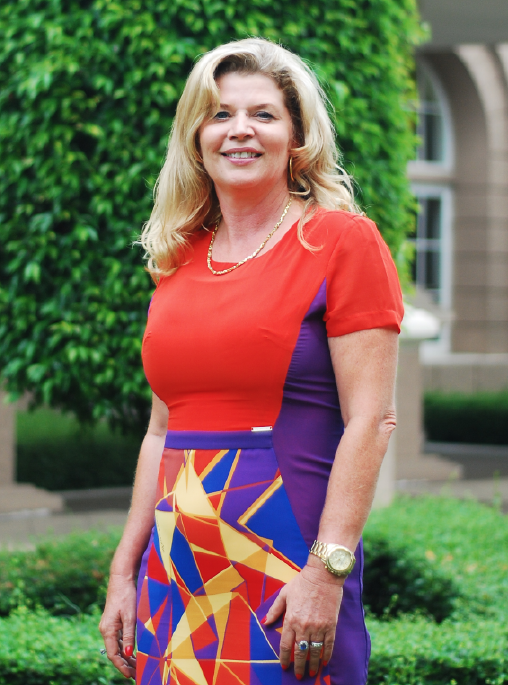
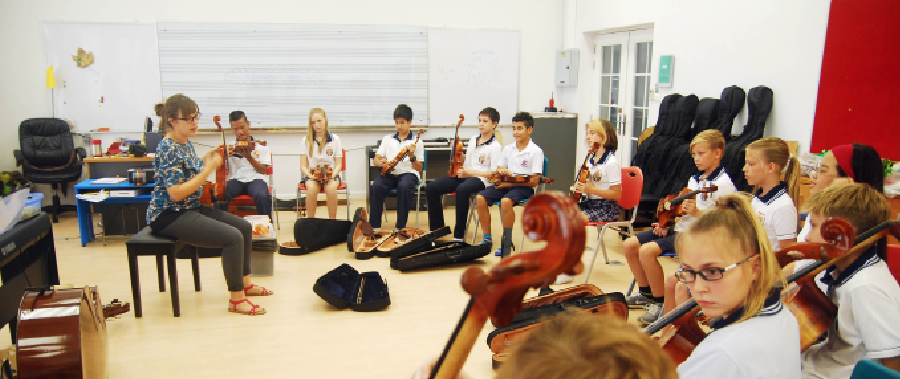
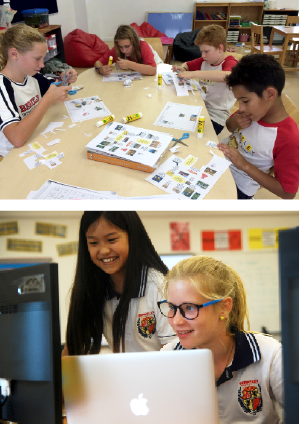
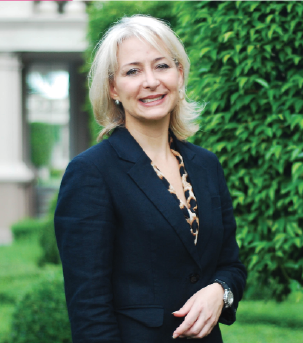
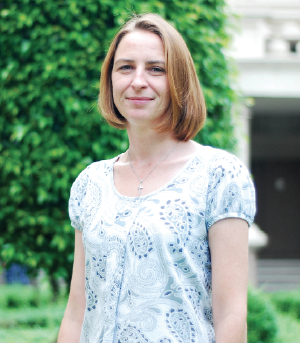
 RSS Feed
RSS Feed
















